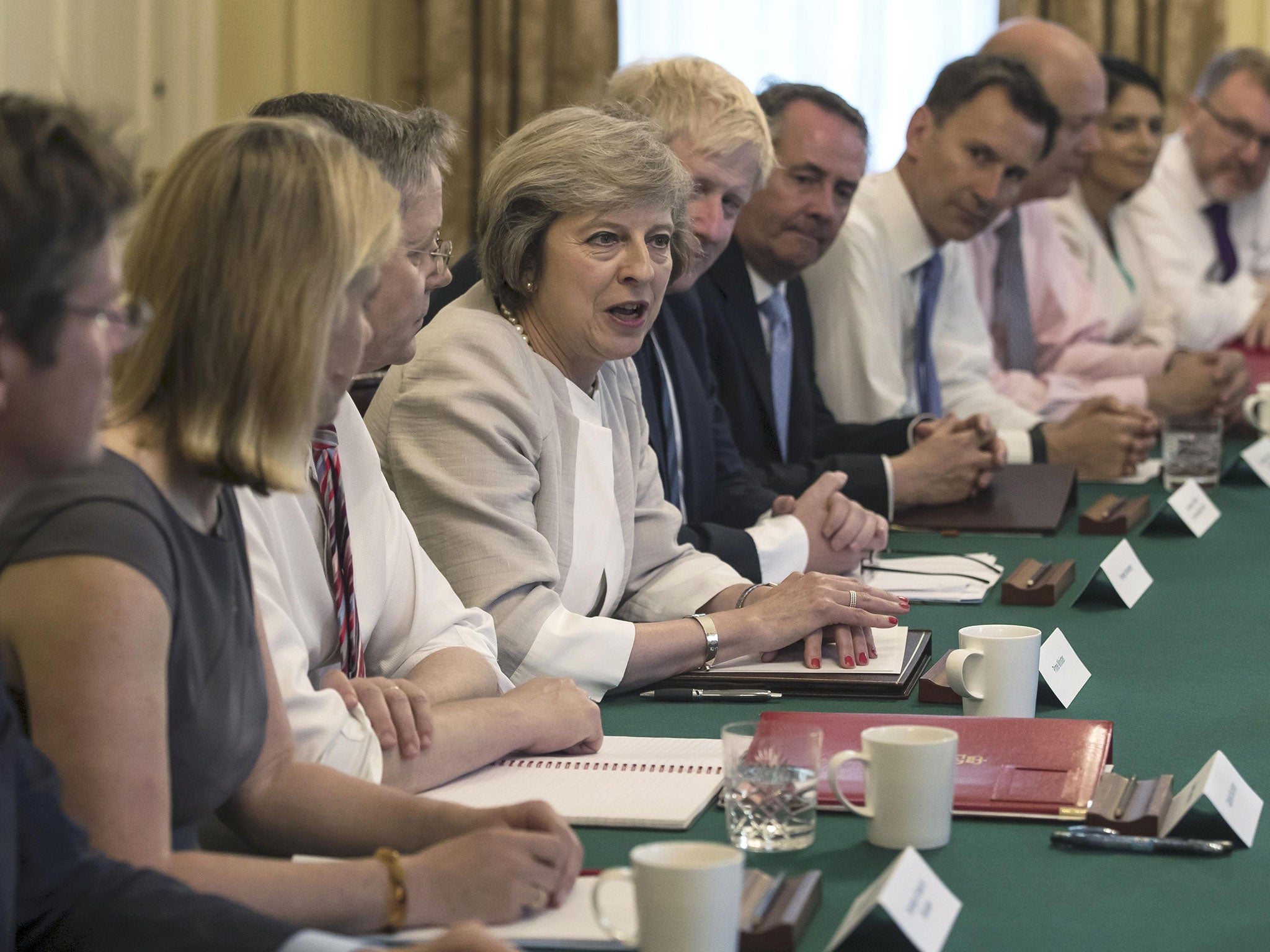The national debt could begin to climb again under May's government – which isn't necessarily a bad thing
Britain needs to invest, and “to build the education, skills, and social mobility to allow everyone to prosper from the opportunities of leaving the EU”, as she put it. Her instincts in that regard are sound. What is much more difficult to discern is how Mr Hammond will be able to fund all that

The images of the first meeting of Theresa May’s new Cabinet are striking in more than one respect. Next to her we see in an unfamiliar setting the familiar features of the new Foreign Secretary, Boris Johnson, who seems to have had the attention of a barber since his appointment. Directly across, and firmly in Ms May’s eyeline, is her new Chancellor, Philip Hammond, and her faithful Defence Secretary, Michael Fallon. David Davis, the Government’s “Mr Brexit”, and the party chairman, Patrick McLoughlin, are also well positioned to catch the prime ministerial eye. By contrast, Andrea Leadsom is not even in the Prime Minister’s peripheral vision, banished to the far end of the table in the spot traditionally reserved for people prime ministers don’t want to have to listen to. No surprise there.
Deliberate or not, the topography of the Cabinet room confirms the primacy that the Brexit agenda has in this Government. Despite Ms May’s plea to her colleagues, and the world at large, that she doesn’t want her Government to be “defined by Brexit”, that is precisely what will happen. The dismantling of Britain’s central diplomatic, political and economic relationship after almost half a century will of necessity make it the Government’s principal project. When Ms May said after the referendum verdict that “Brexit means Brexit”, she might have well have said “Brexit means Me”. If she and her “Three Brexiteers” fail to win advantageous terms for Britain – and the auguries are not good – then her Government will have failed on its own terms, with uncertain consequences for her and her party. If she succeeds, and convinces the country that it is indeed set on a path to greater prosperity, then winning her own mandate in 2020 and a second term will become a bankable prospect.
If she manages to stay in Downing Street until around 2025, she will be one of the longest serving prime ministers in the past century, in the same league as Margaret Thatcher or Tony Blair. There’s a lot riding on her new team.
She was right, though, to stress that, in or out of the EU, Britain needs to invest, and “to build the education, skills, and social mobility to allow everyone to prosper from the opportunities of leaving the EU”, as she put it. Her instincts in that regard are sound. What is much more difficult to discern is how Mr Hammond will be able to fund all that. The optimistic scenario – and the Government is continually asking us to copy its sunny outlook on life – is that he will find little difficulty in borrowing from the capital markets for genuine investment that will repair the national infrastructure. Improving our transport capacity – with the Heathrow decision at the core of that – and adding to the nation’s human capital will, in the long term, yield significant benefits, and ones that will be needed more than ever in a post-Brexit economy.
The pessimistic case, echoing the IMF’s downgraded forecasts for UK and global growth, is that the public finances will be knocked so hard by Brexit uncertainty that the best Mr Hammond could do is to stabilise the situation. His predecessors left him with relatively little headroom in the key ratios of debt to national income, and he may need to be cautious in his approach, even if interest rates are at such historically low levels. It is perfectly possible that, on various measures, the national debt will start to climb again in this government of (nominal) right-wingers. If so, it may be no bad thing in the long run.
Join our commenting forum
Join thought-provoking conversations, follow other Independent readers and see their replies
Comments
Bookmark popover
Removed from bookmarks